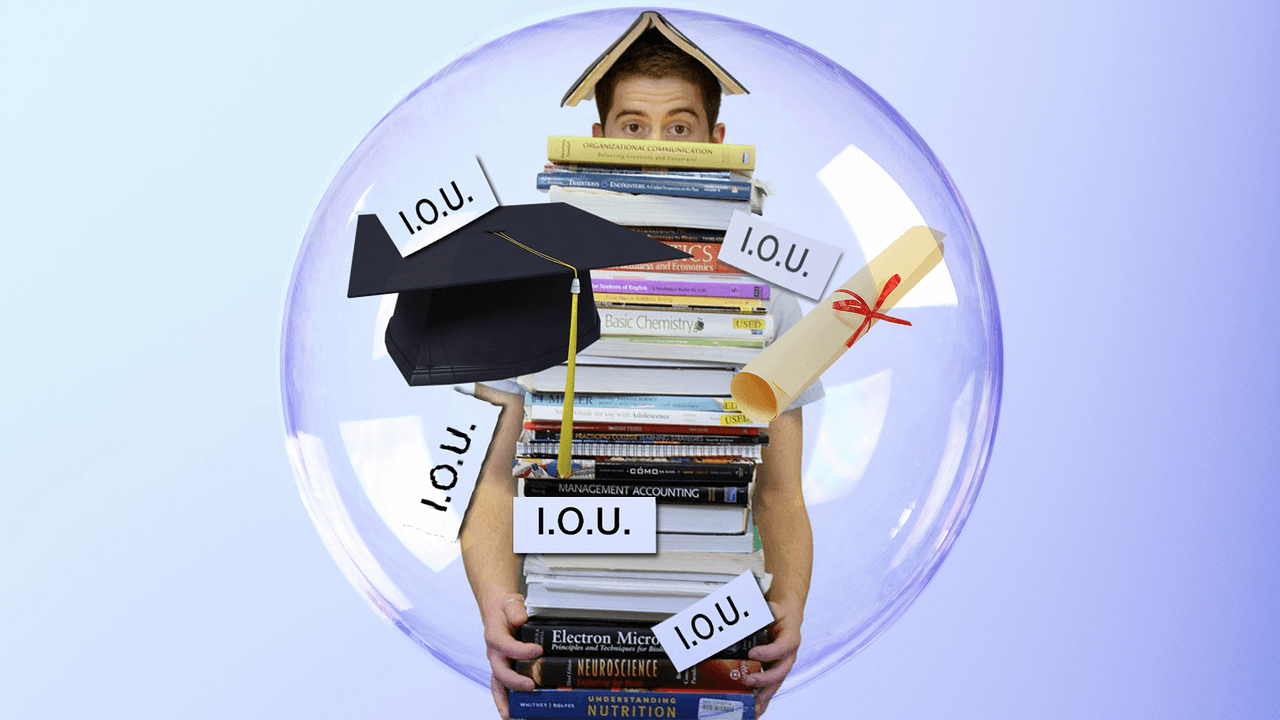Student-centric advice and objective recommendations
Higher education has never been more confusing or expensive. Our goal is to help you navigate the very big decisions related to higher ed with objective information and expert advice. Each piece of content on the site is original, based on extensive research, and reviewed by multiple editors, including a subject matter expert. This ensures that all of our content is up-to-date, useful, accurate, and thorough.
Our reviews and recommendations are based on extensive research, testing, and feedback. We may receive commission from links on our website, but that doesn’t affect our editors’ opinions. Our marketing partners don’t review, approve or endorse our editorial content. It’s accurate to the best of our knowledge when posted. You can find a complete list of our partners here.
Do I Have to Start Paying Back My Loans if I Take a Semester Off?
 By
Gabriel Jimenez-Ekman
By
Gabriel Jimenez-Ekman 
Gabriel Jimenez-Ekman is a content editor and writer at Scholarships360. He has managed communications and written content for a diverse array of organizations, including a farmer’s market, a concert venue, a student farm, an environmental NGO, and a PR agency. Gabriel graduated from Kenyon College with a degree in sociology.
Full BioLearn about our editorial policies

Annie has spent the past 18+ years educating students about college admissions opportunities and coaching them through building a financial aid package. She has worked in college access and college admissions for the Tennessee Higher Education Commission/Tennessee Student Assistance Corporation, Middle Tennessee State University, and Austin Peay State University.
Full BioLearn about our editorial policies

Maria Geiger is Director of Content at Scholarships360. She is a former online educational technology instructor and adjunct writing instructor. In addition to education reform, Maria’s interests include viewpoint diversity, blended/flipped learning, digital communication, and integrating media/web tools into the curriculum to better facilitate student engagement. Maria earned both a B.A. and an M.A. in English Literature from Monmouth University, an M. Ed. in Education from Monmouth University, and a Virtual Online Teaching Certificate (VOLT) from the University of Pennsylvania.
Full BioLearn about our editorial policies

As a student loan borrower who has yet to complete your degree, you may be wondering, “What happens to your loans if you take a semester off from college?” This is an important question to sort out before you make any final decisions regarding your enrollment status. In this article, we’ll go over the different policies that each type of student loan has, and how that will impact your financial situation during a semester off. Let’s get into it!
Also see: Best student loan repayment plans
First step: Check what types of loans you have
As you consider taking a semester off of college, your first step should be to identify exactly what types of loans you’ve taken out. Each loan has its own policies regarding when repayment must begin after a student is no longer enrolled in school. So, go through your finances and make a list of exactly how much you’ve taken out from each lender.
Next, you can go through our list and identify each type of loan you’ve taken out. Each will let you know what will happen to your loan while you’re not enrolled.
Related: Navigating different types of student loans
What happens to federal loans if you take a semester off from college
Direct Loans (also known as Stafford Loans)
All Federal Direct Loans, whether Subsidized or Unsubsidized, taken out for undergrad or grad school, come with a grace period of six months. This means that you won’t have to make any payments until six months after you are no longer enrolled in college. If you end up taking more than a semester off, or if the total time off exceeds six months, you may have to make a few payments before re-enrolling in school, at which point you can suspend payments again until six months after you graduate or leave school again.
However, there is one important distinction between different types of Direct Loans. Subsidized Direct Loans will not begin to gather interest until after the grace period is over, whereas Unsubsidized Direct Loans begin to gather interest immediately after you take them out. So, while you won’t have to make payments during your semester off on Unsubsidized Direct Loans, they will be increasing in interest.
Perkins Loans
Federal Perkins Loans typically have a nine-month grace period, meaning you won’t have to make any payments on them until you’ve been out of school for nine months. So, as long as you don’t take more than nine months off school, you won’t have to begin making payments. However, the grace period could vary by school, so be sure to reach out to your school to be sure. Additionally, these loans will be accumulating interest during your time off.
PLUS Loans
PLUS loans do not come with an automatic grace period, so by default, borrowers must begin making payments immediately. However, borrowers can submit requests to defer payment by up to six months using a specific form from the Department of Education. With this deferment, as long as your break from school is less than six months, you won’t have to make any payments.
Also see: Parent PLUS Loans: Everything you need to know
What happens to private loans if you take a semester off from college
While federal loans have a general set of guidelines that apply to all borrowers, private loans are a different story. Each private loan has its own set of terms and conditions agreed upon by the lender and borrower.
Some private loans have no grace period at all, meaning that students would have to begin making payments immediately upon taking a break from or leaving school. Others have grace periods up to 9 months or a year, though this is relatively uncommon. So, for all private loans, you’ll have to look into the terms and conditions to find out how repayments would function if you were to take a break.
Additional student loan repayment resources
As you prepare to start repaying your loans, the options may seem overwhelming. Luckily, we have a few resources to help you through it. Check out our guide to lowering your student loan payments and our guide on how to pay back your loans. You can also check out our guide to consolidating and refinancing student loans. Finally, spare your pocketbook and try out our list of grants to pay back student loans! Good luck out there!





